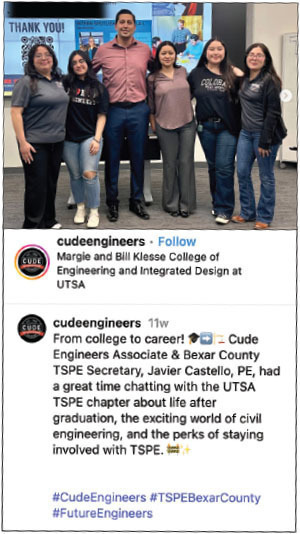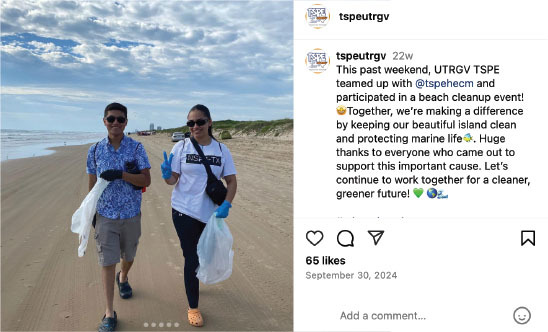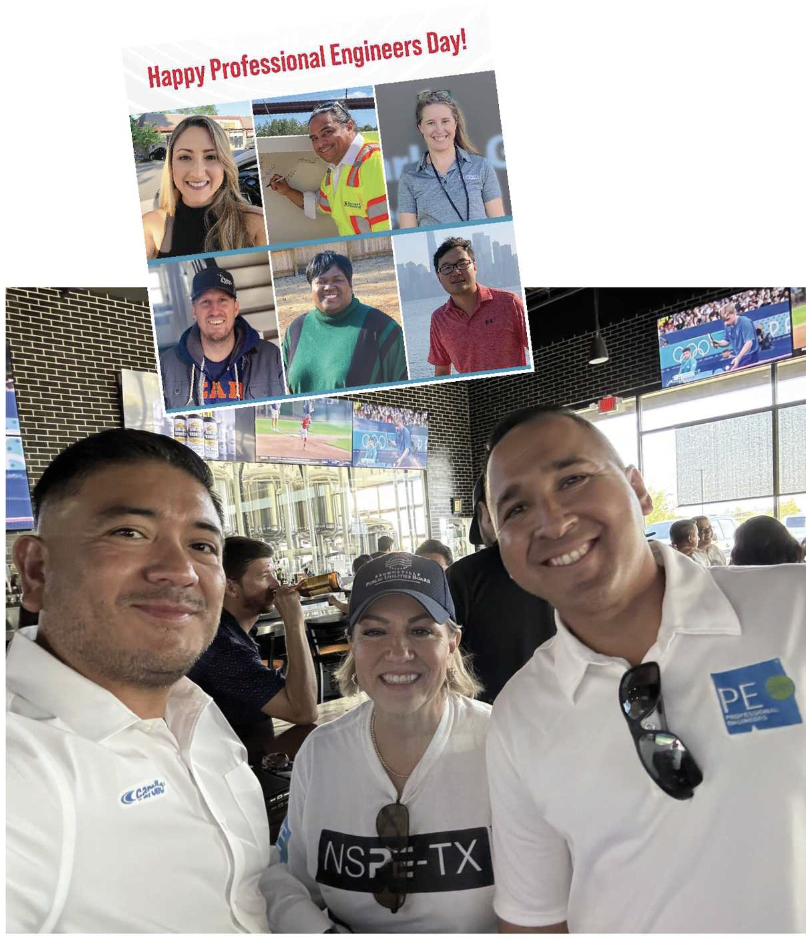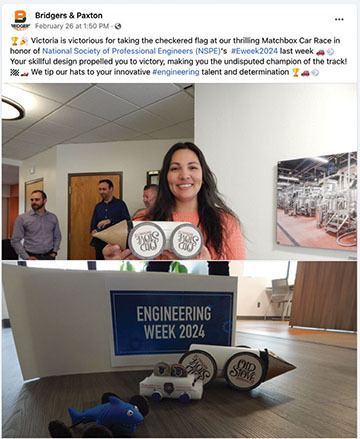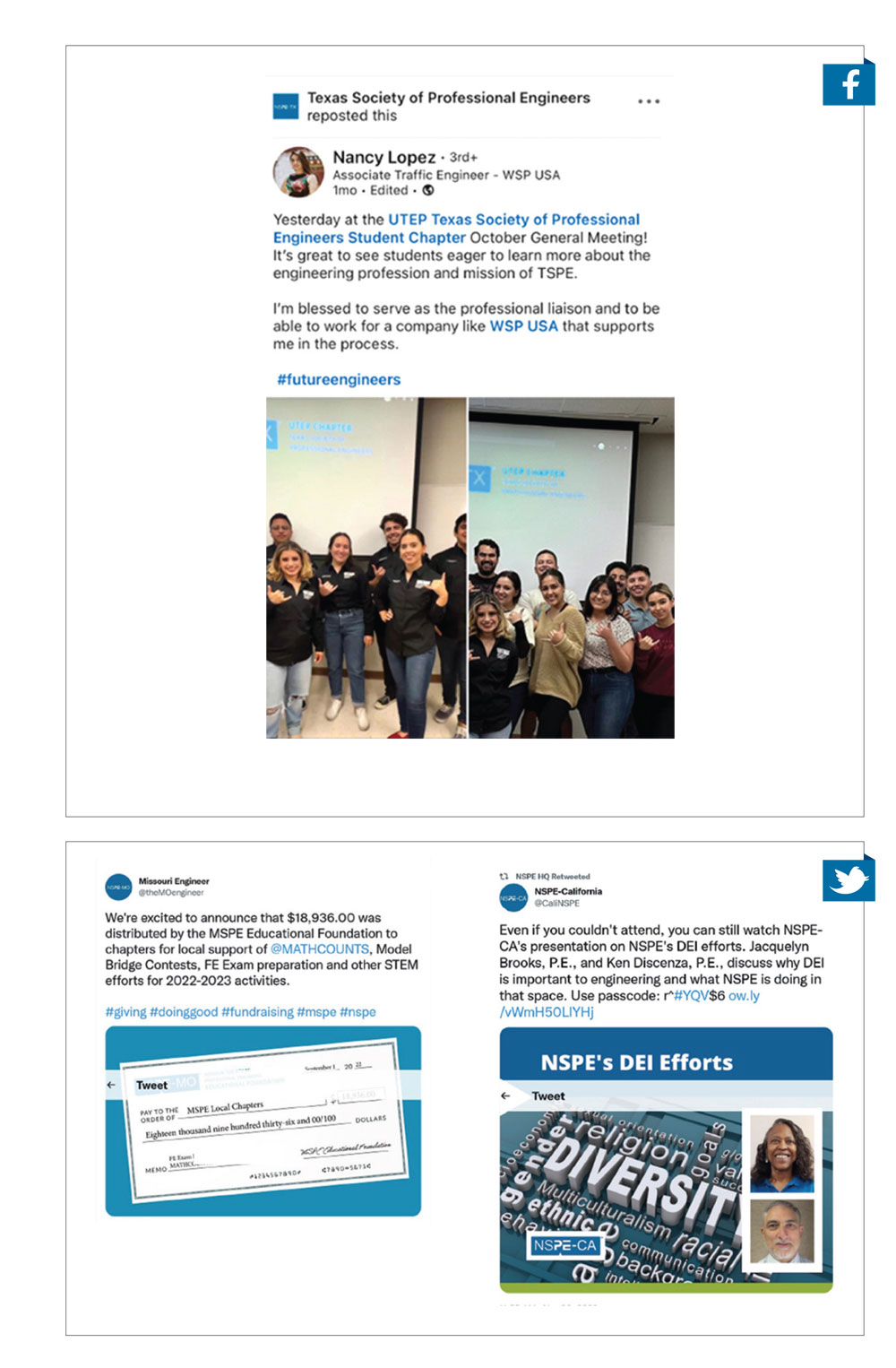December 2013
Letter
Widening the Talent Pipeline
October’s cover story (“The Magic Number,” p. 20) addresses a very important issue that is widely discussed in the profession: How many engineers does the country need?
In addition to the information presented in the article, it should be noted that for decades NSPE has worked diligently in support of widening the talent pipeline to increase the number of qualified individuals entering engineering. The Society’s work includes support of MATHCOUNTS; National Engineers Week and the Future City Competition; national, state, regional, and local K–12 STEM education programs; minority recruitment into engineering; engineering scholarships; as well as other initiatives. NSPE’s Position Statement No. 1768 on STEM education acknowledges this critical point by noting, “If we are to increase the number of engineering graduates, it is essential that we ensure that all students possess an understanding of the creative processes, the challenges, and the rewards of engineering.”
Past President Dan Wittliff, P.E., F.NSPE, also addressed the nation’s need for engineers in the March 2013 PE (p. 33). As Dan pointed out, the U.S. needs approximately 250,000 new engineers a year while the education system (domestic and international) is currently producing 25,000 graduate engineers fewer than that each year. That’s why NSPE last year joined with the Society of Women Engineers in a commitment to double the number of female undergraduates in engineering to 40,000 by 2023, to cite just one current initiative.
But it isn’t only NSPE and state societies that can contribute to the profession’s future. Each PE needs to do his or her part, encouraging and supporting future engineers through things like mentoring, outreach, and support of local educational institutions.
As “The Magic Number” points out, there are differing views on this complex subject. It’s certainly one that the profession should continue to address and play an active role in the related policy discussions.
Robert Green, P.E., F.NSPE
NSPE President
Questionable Actions
The Florida Engineering Society takes strong exception to the publication of “My Long Road To Becoming a PE” by David Clements, P.E., in the July 2013 issue of PE. The nature of the content flies in the face of the NSPE Mission Statement (included in the front of the magazine!) and the intent, if not the letter, of NSPE’s Code of Ethics.
The content of PE should reflect the highest standards of NSPE’s Code of Ethics and Mission Statement.
According to Mr. Clements, a graduate of Brighton University in the U.K., the Florida Board of Professional Engineers (FBPE), located in the state in which he resided and planned to practice, required for the PE exam that he have 16 hours in humanities and social sciences (an ABET requirement), which he did not want to take. To avoid the additional course work, he took the FE exam in Florida, which Florida allows without the humanities and social science requirements. He then shopped the various states until he found one (Texas), which would not require the humanities and social science credits to take the PE exam, and became licensed in Texas.
Apparently, the editor’s goal was to highlight (done in bold in the center of the article) the fact that Mr. Clements stated that, “My main motive for getting the PE was career advancement—I couldn’t get promoted any more without getting my PE....” thereby demonstrating the value of the PE. What the editor completely missed or overlooked was the remainder of the statement, “and my company didn’t care that my PE was from a different state than the state I work in, so I have no particular need to go any further, at least for now,” and also the tone and content of the rest of the article, including statements such as, “you cannot apply for a PE in Florida unless you meet their education requirements. This is something of a joke.”
While the writer has every right to express his opinion and has probably acted in accordance with the laws of each state mentioned, it is highly questionable whether actions such as these and plans for the future practice of engineering in Florida meet the standards of the NSPE Code of Ethics, especially those Fundamental Canons that state, “Avoid deceptive acts” and “Conduct themselves honorably, responsibly, ethically, and lawfully so as to enhance the honor, reputation, and usefulness of the profession.” For this reason alone the article should have been rejected.
PE is, and should be, the perfect forum for a professional discussion and criticism of the licensure process and requirements. This forum should include facts, opinions, and, yes, even personal accounts. Articles such as this, however, which highlight and even tacitly offer approval of the ways around the intent of the licensing laws and ethical practice, have no place in the Society’s magazine.
We will leave any comments or response to the criticisms of the writer’s actions, or those of the FBPE and the Texas Board of Professional Engineers to others. Our purpose here is to request that NSPE address a policy of prepublication editorial review by NSPE leaders of articles in order to prevent such a mockery of NSPE values from occurring again.
Glenn E. Forrest, P.E.
President, Florida Engineering Society


 Volunteering at NSPE is a great opportunity to grow your professional network and connect with other leaders in the field.
Volunteering at NSPE is a great opportunity to grow your professional network and connect with other leaders in the field. The National Society of Professional Engineers (NSPE) encourages you to explore the resources to cast your vote on election day:
The National Society of Professional Engineers (NSPE) encourages you to explore the resources to cast your vote on election day: